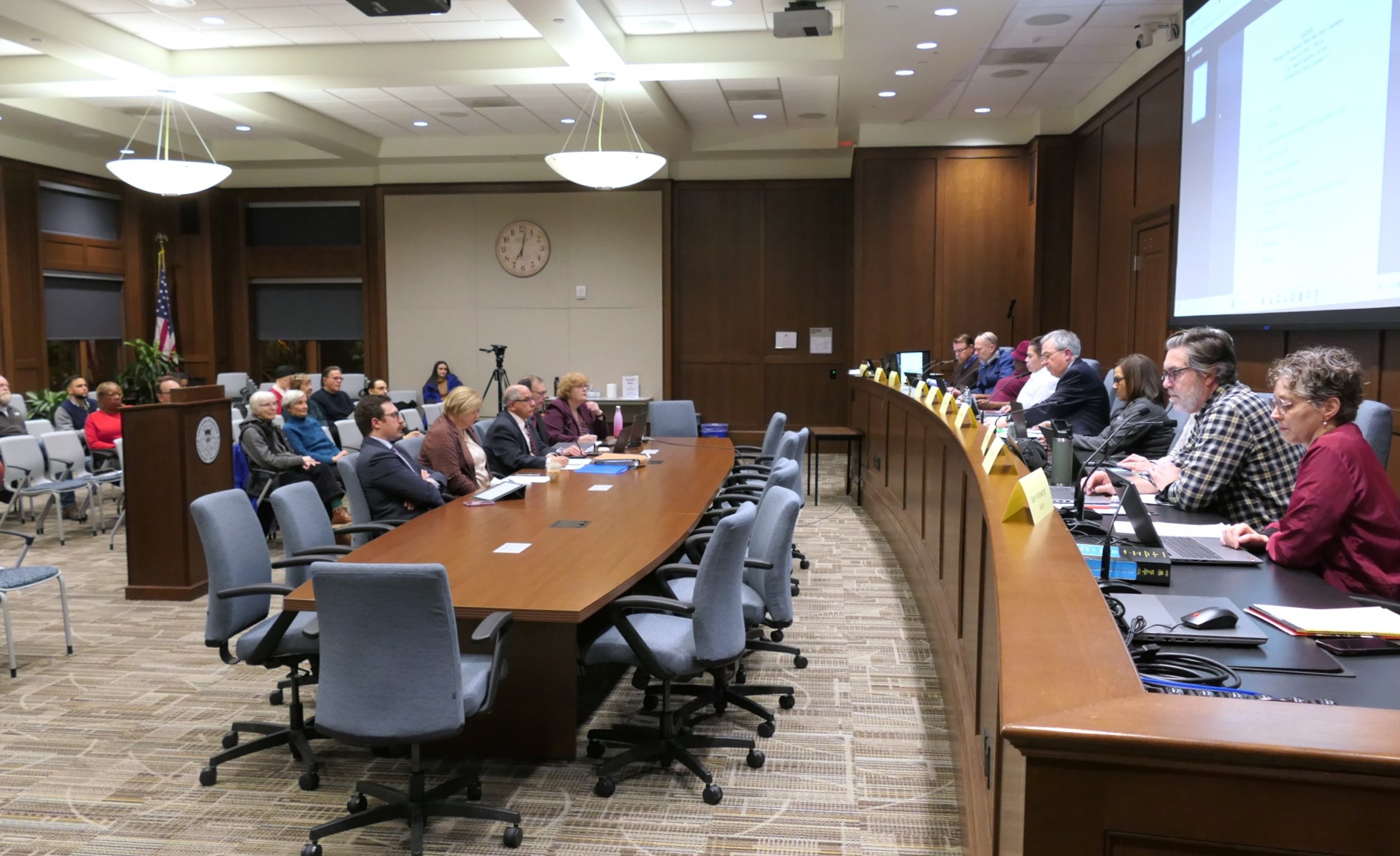Lancaster city’s Home Rule Study Commission proceeded steadily and doggedly Thursday evening through a series of decisions about the design of City Council.
Responding to a lengthy list of prepared questions from Gerald Cross, senior research fellow at the Pennsylvania Economy League, commission members agreed the home rule charter they are drafting should:
- Vest full legislative power in City Council, subject to such limitations as the charter itself specifies;
- Define a quorum as the number of council members actually serving (as is the case now), not the number of seats;
- Oblige City Council to hold at least one meeting a month;
- Allow City Council to hold preliminary committee or “workshop” meetings to discuss legislation before a voting meeting;
- Allow the mayor, council president or a majority of City Council members to call a special meeting;
- Allow council members to be paid for serving; and to be compensated for expenses incurred in the course of council business;
On each issue, Cross polled each member in turn. Opinion was unanimous on some questions; on others, there were one or two dissents.
Commission members deferred a decision on whether council members should be eligible for city health insurance and pension coverage. Currently they are, under the same rules as other city employees. For the pension, that means they are vested after five years and can earn a pension after 10 years, or 2 1/2 terms, City Clerk Bernie Harris said.
Their pension is based on their salary, which is $8,500 a year for the council president and $8,000 for the other six members.
Commission members debated the pros and cons. Providing health and pension benefits could help to level the playing field and promote equality of opportunity; on the other hand, it might provide an incentive to stay in office over and above the motivation of public service.
Chairman Brian Adams said in his view, part time elected officials like City Council members are essentially independent contractors and thus aren’t eligible for benefits.
Mayor Danene Sorace urged the commission to consider the matter carefully: Health insurance is the city’s No. 1 budget driver, so their choice will have significant financial consequences.
Cross and Solicitor Barry Handwerger suggested the commission could form a subcommittee to help it decide. It would be tasked with gathering data on that issue — and others, as the commission directs — and reporting back its findings.
Toward the end of the meeting, that idea fed into a larger discussion about process and whether the commission is operating as efficiently as it could.
Maxine Cook noted that she and other commission members consistently wanted more information to respond to Cross’ questions. Member Darlene Byrd agreed and said that Cross, in pushing for consensus on simple yes-no questions, was deferring too many issues until later in the process.
It would be better to conduct thorough debates up front, she said. That way, the commission can create a draft that’s largely complete and agreed upon and needs relatively little revision. Cross’ approach, she said, risks forcing the commission to keep revisiting the same issues anew.
Sorace asked if it would make sense for the commission members to email PEL their answers to the list of questions; topics where there’s consensus would be considered settled, and meeting time could be used to iron out areas of disagreement. Byrd and Elizabeth Elias, however, said that discussing the questions helps trigger ideas.
Carl Feldman made a motion to form the suggested subcommittee, but said he’d be happy to withdraw it if his colleagues wanted to hold off. After discussion, the motion was tabled.
The commission is hoping to complete a draft of the charter by late July, in order to leave time for all the steps needed to place it before city voters in a referendum this November.
Tony Dastra suggested that holding a half-day or all-day Saturday work session, similar to the city’s annual budget hearings, might allow the commission to make more progress. Chairman Brian Adams said he’s counting on PEL to keep the commission on schedule and alert it if it’s running behind.
Is it? “The jury’s out,” Cross said.
Added his colleague, Fred Reddig: “You’re making progress, but the road is long before you.”






